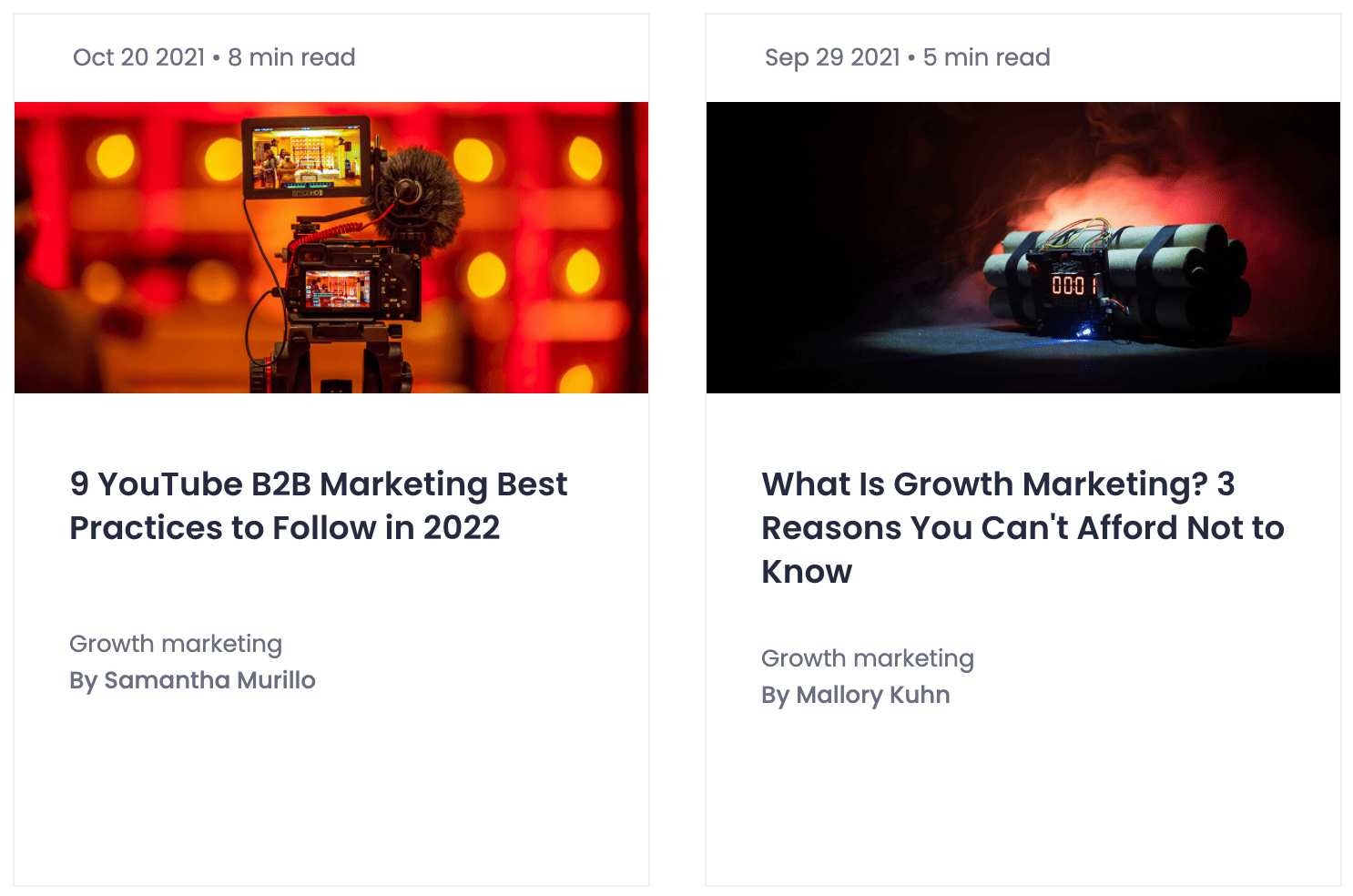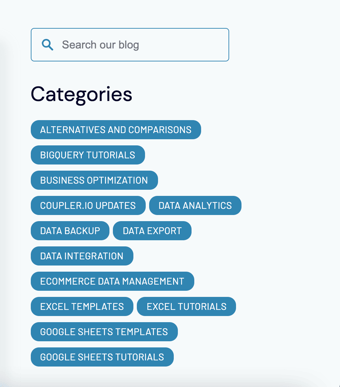You choose among email marketing, social media promotion, public relations, video marketing, PPC, and other strategies and you simply get confused. Your business needs a core strategy. That's when content marketing comes to the rescue.
Still don’t have a content marketing plan as a part of your growth strategy? Let us prove to you why you should create and stick to one.
How Does Content Marketing Benefit SaaS?
Content helps market a product in many ways: it introduces it to the world, showcases how it works, explains why people need it, and explores what's behind it. In fact, 70% of people prefer learning about a company through articles rather than an advertisement, and 90% of users find custom content useful.
With just this one strategy, you can approach audience engagement diversely to increase your chances of attracting customers. Here are five reasons why content marketing worth trying for your SaaS.
1. Content Marketing Converts
Content marketing provides lots of conversion opportunities. People are always engaged with what captures their attention, which makes quality content pieces an excellent tool for engagement. And the more engagement, the more chances to get the conversion.
With content marketing, there are so many ways to convert visitors into customers. Blog posts, tutorials, external contributions, media articles, content on social media — all these attract people to check out your product.
Then, you can turn visitors you've got with the content into leads by encouraging them to interact with your content, such as by adding CTAs, quote forms, or even gifts.
For example, a visitor scrolling through the Lean Labs website can see an offer to get the growth marketing strategy kit:
Of course, CTAs work great to get leads from your content. Depending on the content piece, here are some ideas on what actions you should encourage your readers to perform:
- leave their email
- schedule a demo with you
- get a quote on your service
- purchase the product
- leave feedback
Doing content marketing allows you not only to attract people but to retain them. By keeping your publications consistent, you build an audience, which leads to long-lasting relationships with your potential and existing customers.
2. Content Marketing Educates Users
People do not know they may need your product if they don’t know it exists in the first place. Content marketing gives you space to introduce your product to the world by further educating people on it.
With content marketing activities, you get a chance to:
- show your service to potential customers
- demonstrate how it works
- explain why they need it
- guide users on how to use it
- highlight its perks
- skillfully take away users' attentions from possible drawbacks
- share pro tips and stories
- showcase your product better compared with competitors
Besides, you don't have to come up with ideas for your content — these points offer a broad scope of topics to write on. Focus on any of these, and you get a series of useful articles.
Integrating these ideas into a content life-cycle will shape a clear understanding of what your offer is, hence leaving no misunderstanding or confusion among the audience. And clarity shortens the customer’s path to purchase.
Overall, your content aimed at educating the audience should highlight the pain points your target customers face. Then, offer a solution — explain how your service helps deal with the problem.
You can also introduce the features of your product in detail or discuss how it stands out among the existing alternatives. Just make sure that your content is as appealing and engaging as it is useful.
That's how people will get a clear picture of why they need what you offer and how it can benefit them. Then, it's easier to make the purchase decision when it's clear what you're buying.
3. Content Marketing Shows Your Expertise And Domain Knowledge
Content marketing allows you not only to share useful information on your product and its use but also the industry in general. You can use your platforms to introduce your knowledge in the niche, discuss innovations in your industry, consider new potential solutions, and predict future trends.
While your target audience may not be at the same level of expertise in the topics you will focus on, take the challenge to make your dedicated content comprehensible and educational.
For instance, Lean Labs shares content on digital marketing and growth on the blog by interpreting our experience and expertise into comprehensive content for the reader:

We at Coupler.io, also share our domain knowledge on the blog. We're building a community. We focus on various types of content - from long reads and tutorials to short practical articles covering one issue or sharing a single pro tip at a time.

To communicate your competence effectively, be sure to use different approaches to information presentation. Besides actually writing about what you know, add visuals to illustrate your words. Use applicable visuals to recast your message for a better understanding, such as those below:
In addition, provide examples and use statistics or other evidence when available to back up your point.
Sharing your expertise in the domain can, in the long run, lead your company to join a wide-ranging discussion on burning topics in the industry. And participating in a conversation of such scope will secure your reputation as an expert in the field.
Proven expertise, in turn, increases authority and trustworthiness among customers, contributing to a reliable image of your business, customer loyalty, and long-term customer relations.
All-in-all, content marketing efforts shape a community around your product.
4. Content Marketing Is A Core For Other Marketing Strategies
If you're starting to do content marketing, don't think that you now have to limit your marketing strategy to content only. Instead, content marketing works well as the core, when additionally accompanied by other kinds of digital marketing efforts.
Here are some other types of online marketing to combine with content marketing when you’re aiming to develop a comprehensive growth strategy:
How to combine content marketing with other strategies?
Combining a few approaches in digital marketing looks easy only on paper. You should have a solid marketing strategy or at least a clear plan for the first steps. Everything should be documented, aligned with your product development plan.
Here are some examples of combined marketing activities to get you inspired:
- optimizing your blog, website, and copy to search engines with SEO practices
- collaborating with influencers in your industry to grow your social media profiles
- developing an attractive landing page and setting up a pay-per-click campaign leading to it
- launching a newsletter that will inform people about top-notch articles from your blog and product updates
- turning written content into explainer videos and video tutorials
- reaching out to experts in the field for setting up an affiliate or referral program
- collecting various types of testimonials, use cases, customer feedback to shape your own research, statistics, infographics to share them on external channels
With content marketing, the key is to be consistent. And when you're trying to stick to an extensive marketing strategy that combines different targets and activities of various kinds, keeping track of all processes is essential.
Use content planning and management services to keep everything clean and track progress. Using Trello to Excel integration may help you gather all your tasks in one place to create reports. You'll be able to easily track the progress of your combined marketing efforts.
So embrace content planning and align it to the overall marketing strategy. It'll help you avoid delays or overlapping. As you go, you will see that some activities do a better job for your product than others — be sure to adjust your strategy to make it work for the business in the most effective way.
5. Content Marketing Boosts Brand Awareness
You can approach content marketing in so many ways. And telling the world about your SaaS in detail is another way. It targets different channels and platforms as well as types of media, hence giving you numerous opportunities to attract visitors.
Of course, the more your brand appears online, the more chances of getting noticed it gains. Eventually, your brand becomes more recognizable – brand awareness grows.
An important aspect in growing your brand awareness with content marketing is the brand itself. The content you create and publish reflects your brand personality. You’ll eventually shape a tone of voice as well as start focusing on a particular message you aim to deliver and the values you want to emphasize.
In addition to educating on your product, you should use content marketing to tell about what's behind your product. Consider adding the following topics to your content plan; these would make impressive publications leading to greater brand awareness:
- the story of your brand’s creation
- your team
- the goals of your company
- your company’s vision
- the place you want your brand to hold in the industry
Eventually, content marketing helps your company become more than about a product, which makes your brand rememberable.
TLDR: YES Content Marketing is Perfect for SaaS Growth
Content marketing is a powerful asset to your growth strategy for SaaS. It provides you with conversion opportunities, educates the audience on your product, shows your expertise, and increases the awareness of your brand.
Content marketing is easily combined with other online marketing activities, enhancing your brand’s growth. With the benefits listed, the verdict is clear — integrating content marketing in the strategy to grow your SaaS company is the right decision.







